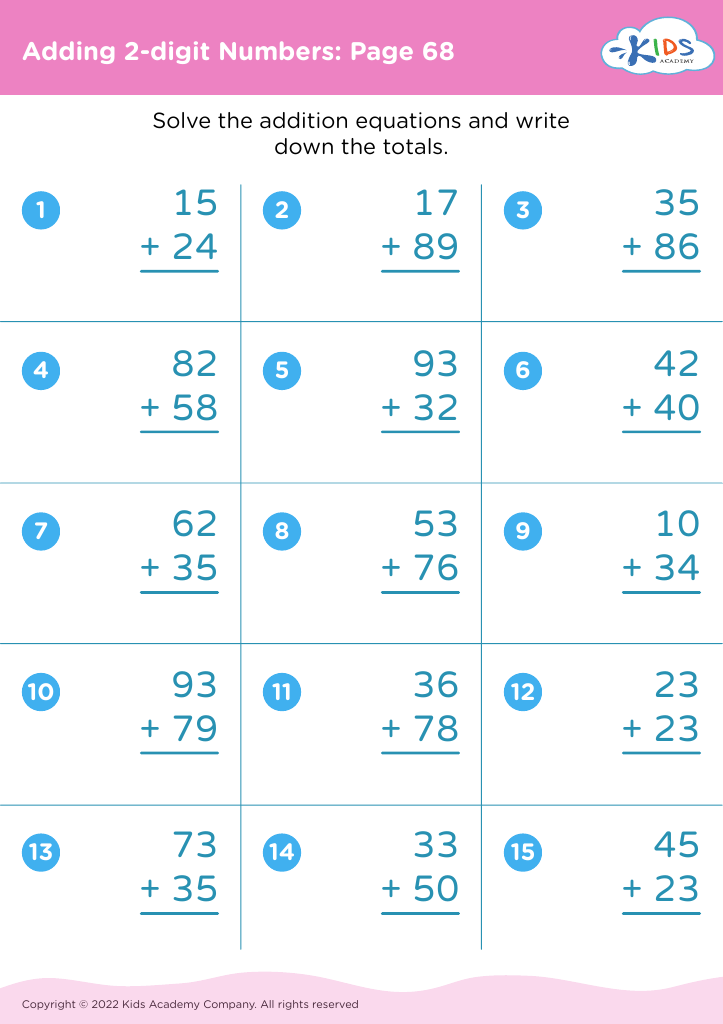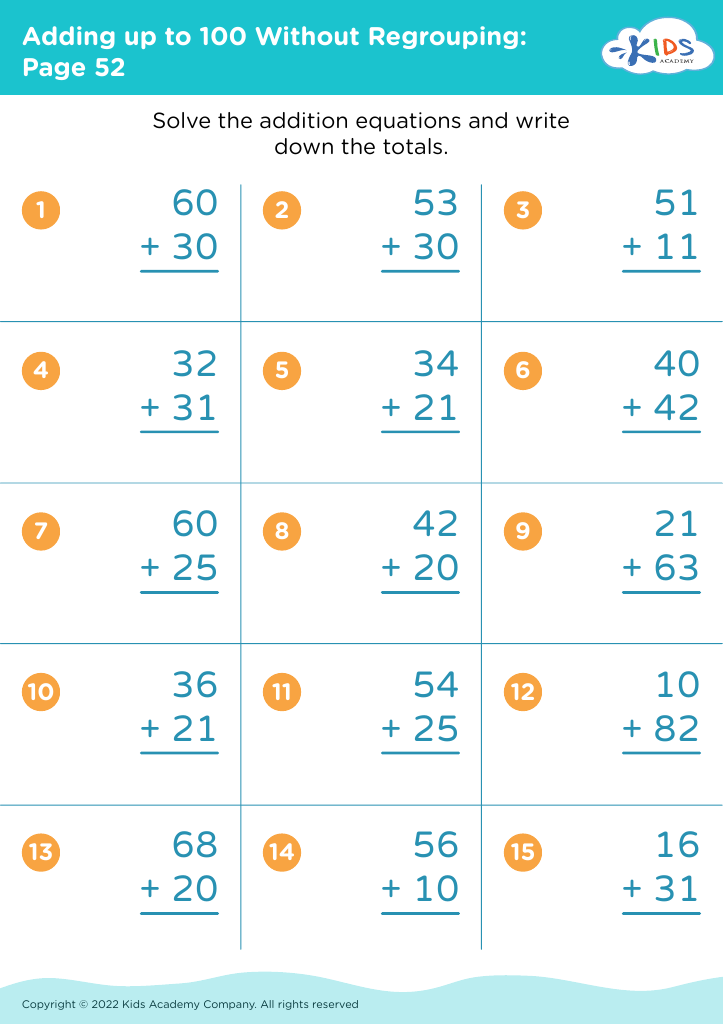Numeracy skills Addition & Subtraction Worksheets for Ages 5-7
10 filtered results
-
From - To
Boost your child's numeracy skills with our engaging addition and subtraction worksheets, meticulously crafted for ages 5-7. These educational resources from Kids Academy make learning fun and effective. Each worksheet is designed to strengthen basic math concepts, enhance problem-solving abilities, and build a strong mathematical foundation. Perfect for at-home practice or classroom use, our activities improve confidence and fluency with numbers. Whether it's single-digit sums or introductory subtracting, Kids Academy ensures young learners grasp essential skills effortlessly. Join today and watch your child excel in math with our expertly designed printable worksheets.
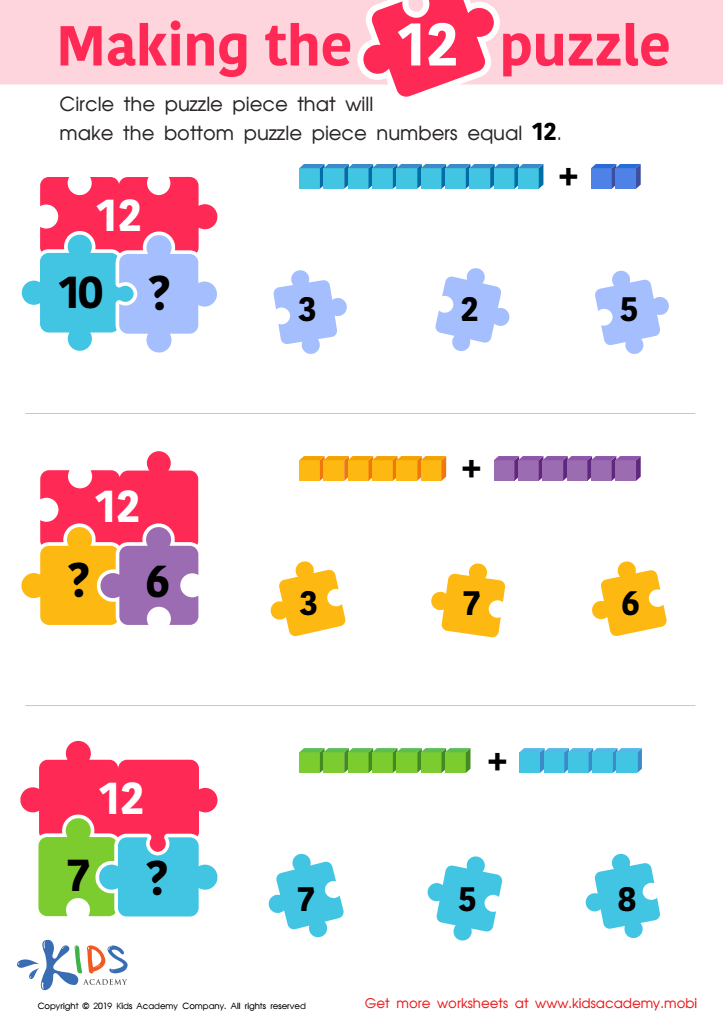

Making the 12 Puzzle Worksheet
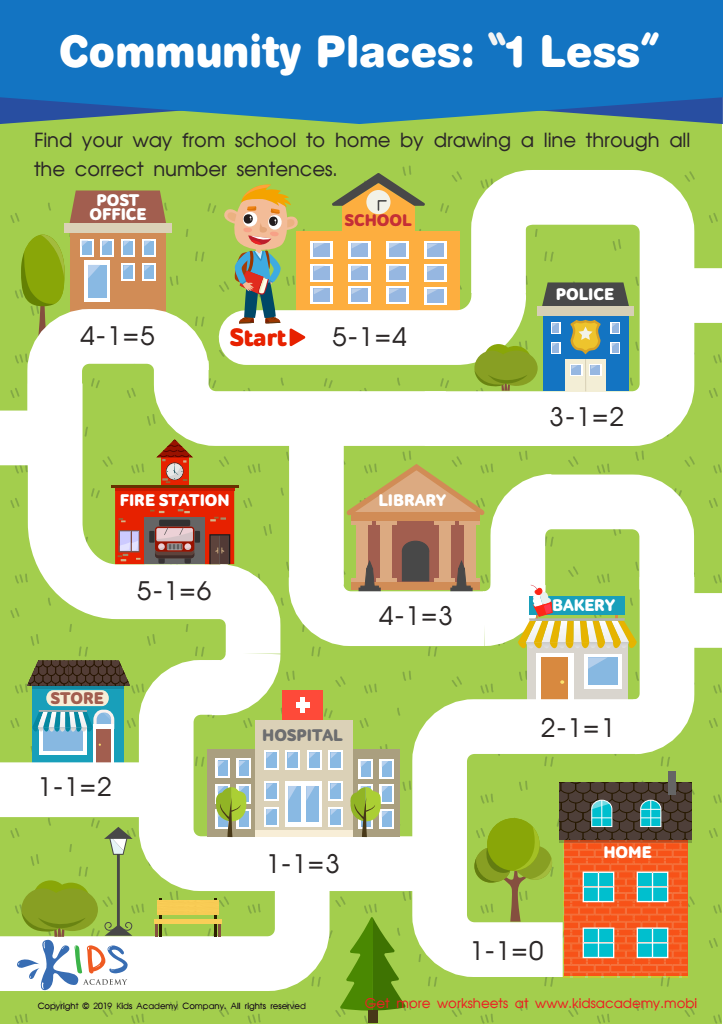

Community Places: 1 Less Worksheet
Developing numeracy skills, particularly in addition and subtraction, for children aged 5-7 is crucial for several reasons. Firstly, these foundational skills are the building blocks for all future math learning. Understanding how to add and subtract not only prepares children for more complex mathematical operations but also fosters logical reasoning and problem-solving abilities. At this early age, the brain is highly receptive, and building a solid grasp of basic math concepts sets the stage for more advanced mathematical thinking later on.
Secondly, numeracy skills are essential for daily life. Simple tasks such as making purchases, following recipes, or dividing tasks rely heavily on addition and subtraction. Educating children in these skills promotes independence and confidence in handling everyday situations. Furthermore, math fosters cognitive development by enhancing memory, concentration, and analytical skills, which are beneficial across various subjects and aspects of life.
Finally, early success in numeracy can positively influence a child’s attitude towards math. Children who grasp these early concepts tend to enjoy math more and see it as a challenge they can overcome, rather than as a daunting subject. Thus, parents and teachers supporting and nurturing these skills can instill a lifelong positive relationship with learning and numbers.


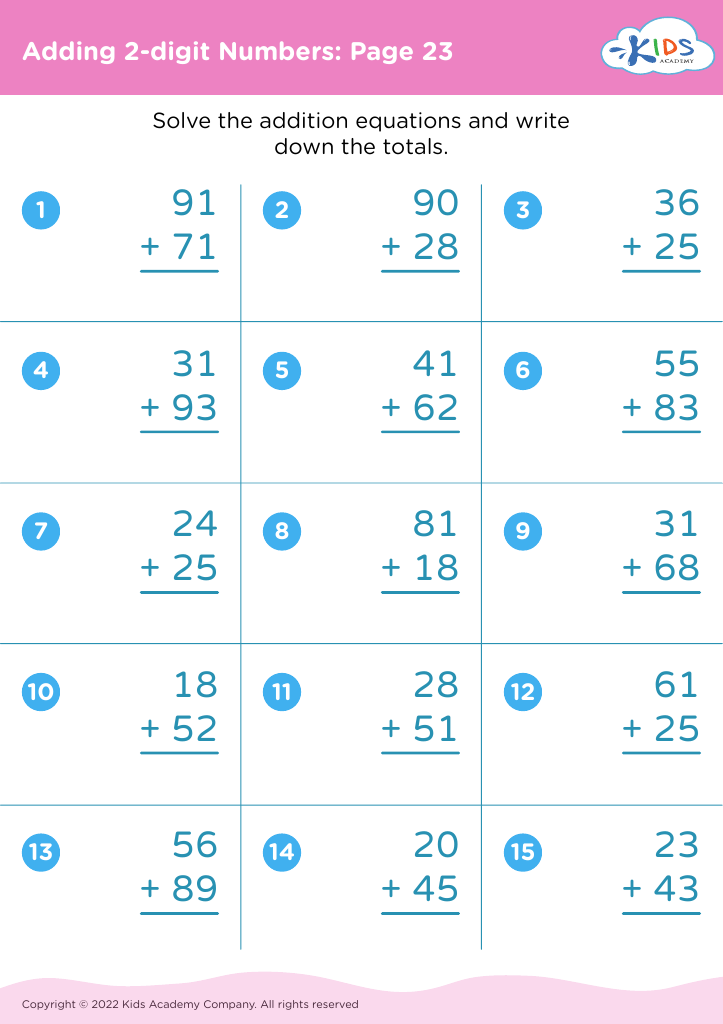

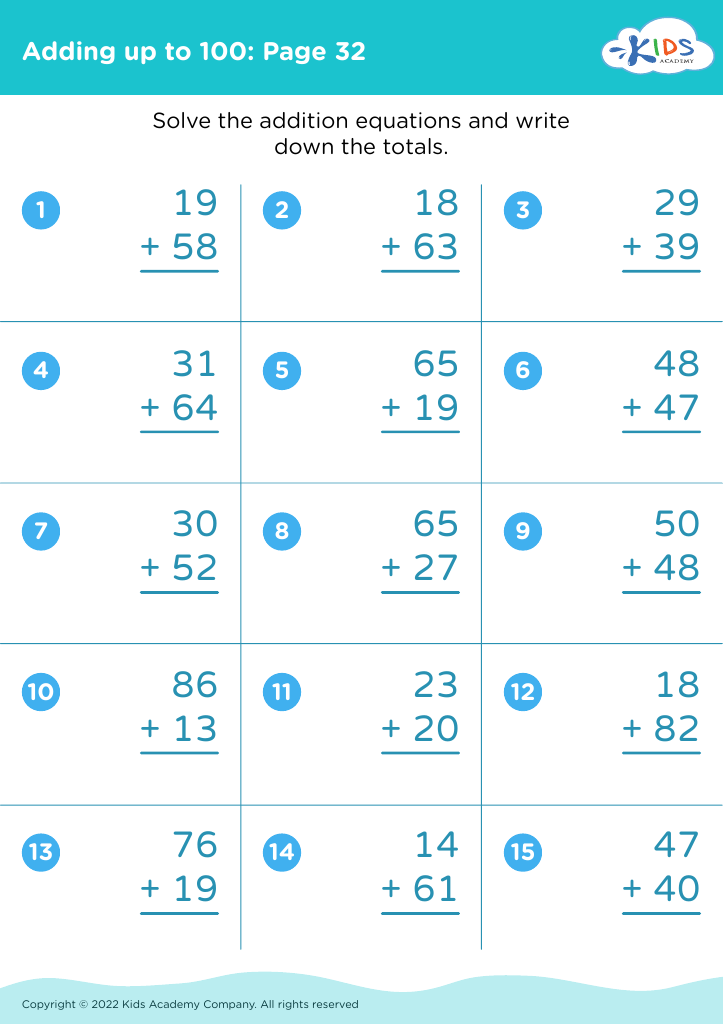


 Assign to My Students
Assign to My Students

